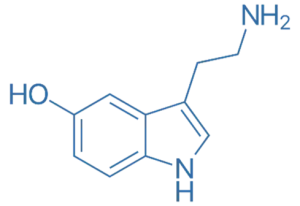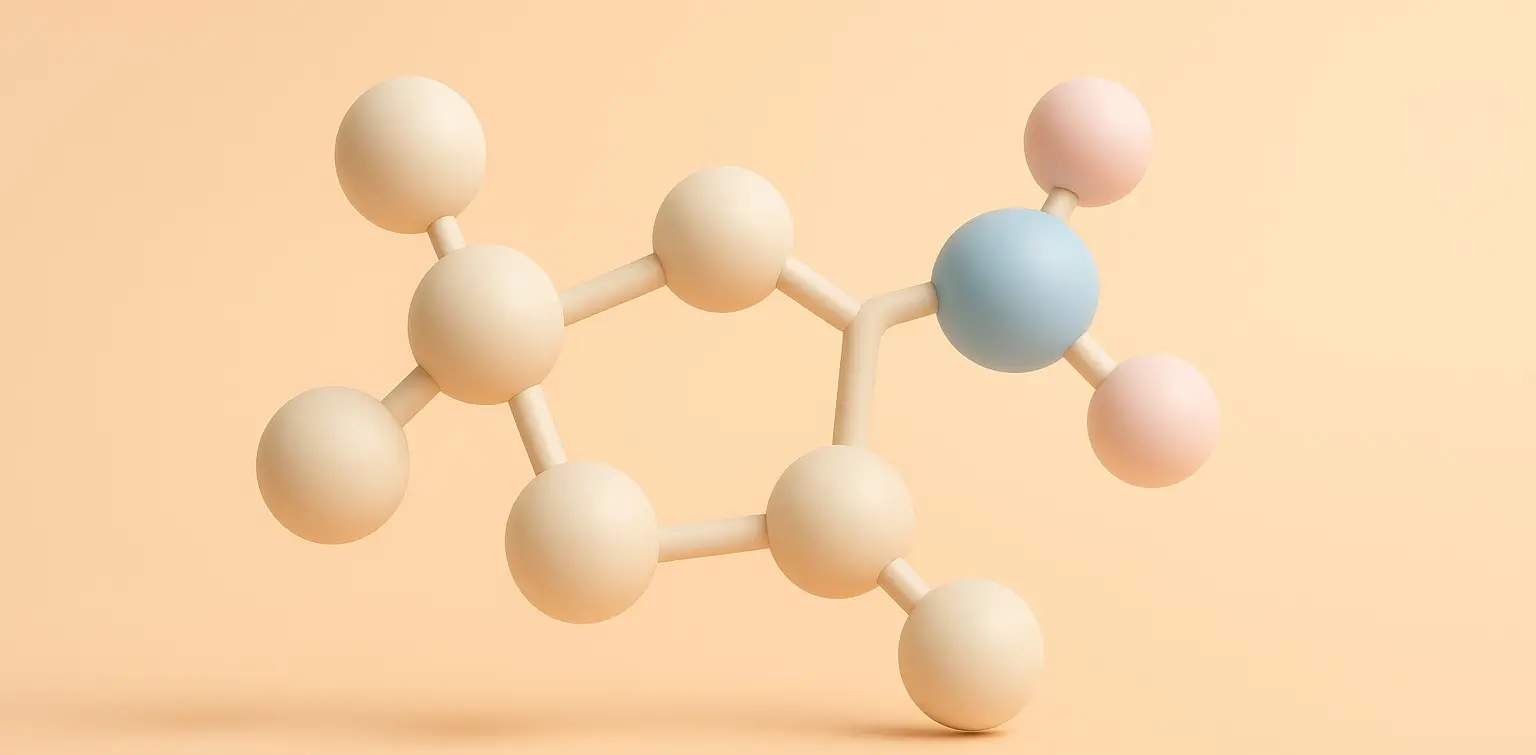- Serotonin (5-HT) is a chemical messenger (neurotransmitter) primarily found in the brain, blood platelets, and the digestive system.
- It plays a key role in regulating mood, emotion, sleep, appetite, digestion, and various other physiological functions.
- Serotonin is synthesized from the amino acid tryptophan and is often associated with feelings of well-being and happiness.
Synthesis of Serotonin (5-HT):

-
Step 1: Conversion to 5-Hydroxytryptophan (5-HTP):
- Enzyme: Tryptophan hydroxylase
- Process: The enzyme tryptophan hydroxylase catalyzes the hydroxylation of tryptophan, an essential amino acid, converting it into 5-hydroxytryptophan (5-HTP).
- Cofactors Required: Tetrahydrobiopterin (BH4) and oxygen.
- Mechanism: BH4 acts as a cofactor, donating electrons, while oxygen adds a hydroxyl group (-OH) to the benzene ring of tryptophan, forming 5-HTP.
-
Step 2: Conversion to Serotonin:
- Enzyme: Aromatic L-amino acid decarboxylase (also known as DOPA decarboxylase).
- Process: 5-HTP is decarboxylated to form serotonin (5-hydroxytryptamine, 5-HT).
- Cofactor Required: Pyridoxal phosphate (vitamin B6).
- Mechanism: The enzyme removes a carboxyl group (-COOH) from 5-HTP, resulting in the formation of serotonin.
Significance of Serotonin (5-HT):
- Mood Regulation: Serotonin is crucial for maintaining mood balance and is often called the “feel-good” neurotransmitter. Low levels are associated with depression.
- Appetite Control: It helps regulate hunger and satiety.
- Sleep: Serotonin influences sleep cycles and is a precursor to melatonin.
- Cognitive Functions: It aids in learning, memory, and cognitive processing.
- Gastrointestinal Motility: Serotonin helps control bowel movements and functions.
- Vasoconstriction: It causes the narrowing of blood vessels, which helps regulate blood flow.
Clinical Relevance:
- Psychiatric Disorders: Imbalances in serotonin levels are linked to conditions such as depression, anxiety, and obsessive-compulsive disorder (OCD)
Click Here to Watch the Best Pharma Videos

